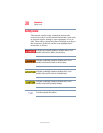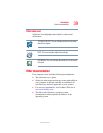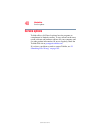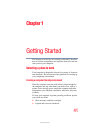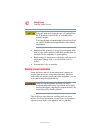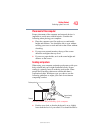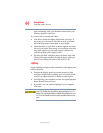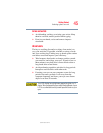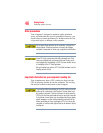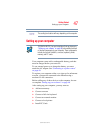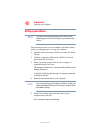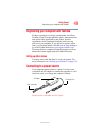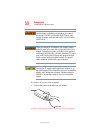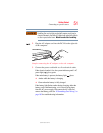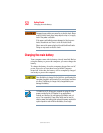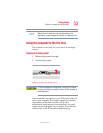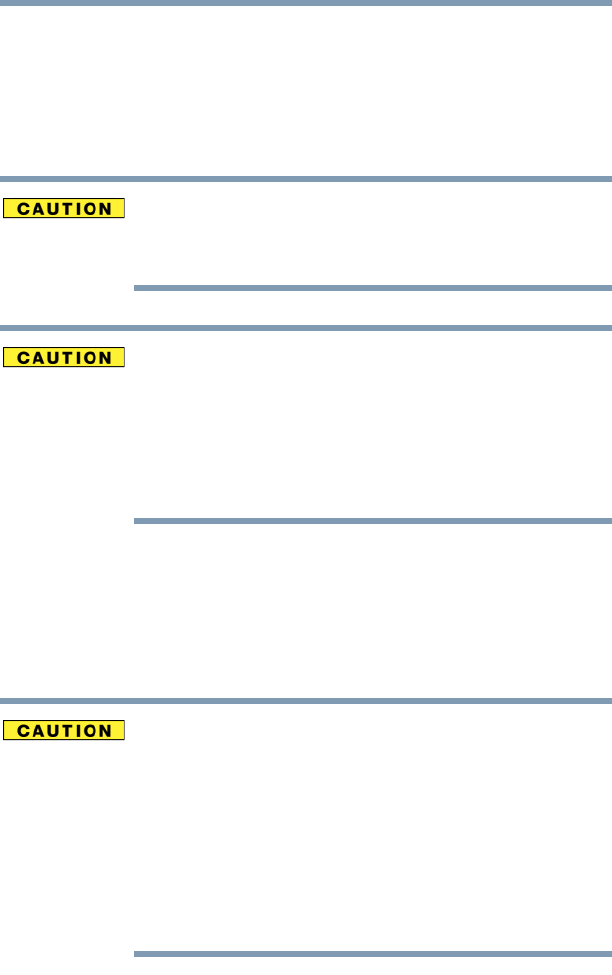
46
Getting Started
Selecting a place to work
5.375 x 8.375 ver 2.3
Other precautions
Your computer is designed to optimize safety, minimize
strain, and withstand the rigors of portability. However, you
should observe certain precautions to further reduce the risk
of personal injury or damage to the computer.
Do not apply heavy pressure to the computer or subject it to
sharp impacts. Excessive pressure or impact can damage
computer components or cause your computer to malfunction.
Some PC Cards can become hot with prolonged use. If two
cards are installed, both can become hot even if only one is
used extensively. Overheating of a PC Card can result in errors
or instability in the PC Card operation.
Be careful when you remove a PC Card that has been used for
lengthy periods of time.
Important information on your computer’s cooling fan
Your computer may have a CPU cooling fan that cools the
CPU by drawing outside air into the computer. The cooling
fan may be located on the bottom of the computer.
To prevent possible overheating of the CPU, make sure the air
intake on the cooling fan is not blocked. The fan draws in air
by creating a vacuum. If the fan is blocked, it could cause the
CPU to run at a lower performance level or cause the computer
to shut down. Loose items such as notebook and tissue paper,
plastic wrappers, or other similar materials can block the air
intake, preventing air from reaching the CPU. Do not use the
computer on surfaces with objects that can be drawn in by the
cooling fan.



